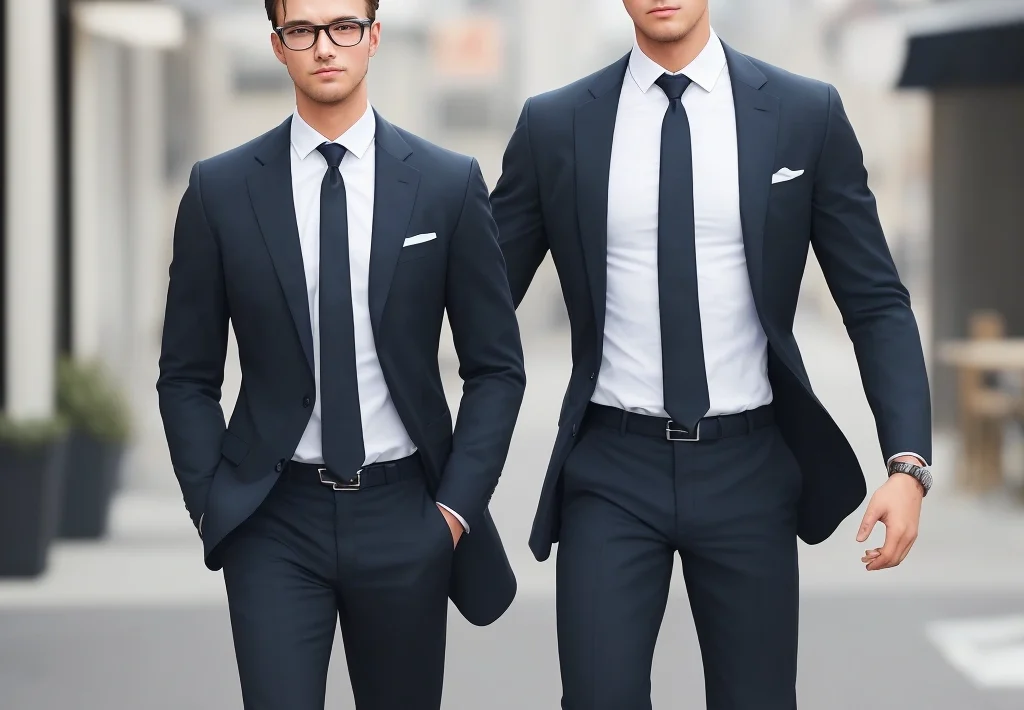Dressing for Success: The Ultimate Guide to Men’s Interview Attire in South Africa
The South African job market is a dynamic and competitive landscape, shaped by unique socio-economic factors, evolving industries, and a diverse workforce. Landing an interview is a significant step towards securing employment, and presenting yourself professionally is paramount. While skills and experience are crucial, first impressions matter, and your attire plays a vital role in conveying competence, respect, and cultural sensitivity. This comprehensive guide delves into the nuances of men’s interview outfits in South Africa, considering local trends, employment laws, and various career opportunities.
Understanding the South African Job Market Context:
South Africa’s job market is characterized by both formal and informal sectors, with varying levels of formality expected in different industries. Unemployment rates are high, making competition fierce. Understanding the specific industry and company culture is crucial in choosing the appropriate interview attire.
Legal Considerations:
While South African labour law doesn’t dictate specific dress codes for interviews, it emphasizes fairness and non-discrimination. Your attire should not be a barrier to employment based on protected characteristics like race, religion, or cultural background. However, it’s important to project professionalism and adhere to reasonable workplace expectations.
Decoding Dress Codes:
Navigating different dress codes can be daunting. Here’s a breakdown of common dress codes in South Africa and how to interpret them for interviews:
- Formal (Corporate/Financial Services/Legal): This calls for the highest level of formality. A dark-coloured suit (navy, charcoal grey, or black) is essential. Pair it with a crisp, long-sleeved shirt (white or light blue), a conservative tie, polished dress shoes (black or dark brown), and dark socks. A well-maintained briefcase completes the look.
- Business Professional (Management/Consulting/Government): Similar to formal, but with slightly more flexibility. A suit is still preferred, but you might opt for a lighter colour or a subtle pattern. A tie is usually expected, but you could consider a more contemporary knot or pattern. Dark or coordinated dress shoes are still necessary.
- Business Casual (Tech/Creative Industries/Startups): This allows for more personality and comfort. Tailored trousers or chinos paired with a button-down shirt (long or short-sleeved) or a neat polo shirt are acceptable. A blazer or sports jacket is optional but adds a touch of professionalism. Leather loafers or smart casual shoes are appropriate. Avoid jeans, sneakers, or overly casual attire.
- Smart Casual (Retail/Hospitality/Some NGOs): This is the most relaxed dress code, but “smart” is key. Well-fitting chinos or dark denim (in good condition) paired with a collared shirt or a smart knitwear piece can work. Clean and presentable shoes, like loafers or fashionable sneakers, are acceptable. Avoid overly casual items like graphic tees, ripped jeans, or flip-flops.
Industry-Specific Considerations:
- Financial Services/Legal: Conservatism reigns supreme. Stick to classic suits in dark colours, white or light blue shirts, and understated ties.
- Tech/Startups: While more relaxed, avoid extremes. Opt for business casual, focusing on neatness and a modern aesthetic. A well-fitting blazer and chinos can strike the right balance.
- Creative Industries: Expressing individuality is acceptable, but ensure it aligns with the company’s culture. A smart casual approach with a touch of personality is generally suitable.
- Government/Public Sector: Formal or business professional attire is typically expected, demonstrating respect for the institution.
Tailoring Your Outfit to the Role:
The level of seniority of the role also influences attire. For entry-level positions, business professional or business casual might suffice. However, for senior management roles, formal attire is generally expected.
Cultural Sensitivity:
South Africa is a multicultural nation. While Western-style business attire is generally accepted, demonstrating cultural sensitivity is appreciated. If you are aware of specific cultural norms within the company or industry, incorporating them respectfully into your attire can show awareness and inclusivity. However, prioritize professionalism and avoid anything that could be perceived as distracting or inappropriate.
Essential Grooming Tips:
- Hair: Ensure your hair is neatly styled and well-maintained.
- Facial Hair: If you have facial hair, keep it trimmed and tidy.
- Nails: Clean and neatly trimmed nails are essential.
- Fragrance: Use cologne sparingly or avoid it altogether.
- Accessories: Keep accessories minimal and professional. A simple watch and a wedding band are acceptable.
Building a Versatile Interview Wardrobe:
- Suits: Two well-fitting suits in navy and charcoal grey.
- Shirts: A selection of white and light blue long-sleeved shirts.
- Ties: A few conservative ties in solid colours or subtle patterns.
- Shoes: A pair of black and dark brown dress shoes.
- Blazer/Sports Jacket: A versatile blazer in a neutral colour.
- Chinos: A pair of well-fitting chinos in khaki or navy.
Beyond the Outfit: Projecting Confidence and Professionalism:
While your attire is important, it’s only one aspect of presenting yourself professionally. Your demeanour, communication skills, and body language are equally crucial. Maintain eye contact, offer a firm handshake, and speak clearly and confidently.
Conclusion:
Choosing the right interview outfit in South Africa requires careful consideration of the industry, company culture, and the specific role. By understanding the local context, dress codes, and industry-specific expectations, you can create a professional and impactful first impression. Remember, your attire is a tool to convey your competence and respect for the opportunity. Combine it with confidence and a positive attitude to increase your chances of success in the South African job market. Investing in a versatile and professional wardrobe is an investment in your future career.
